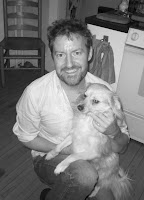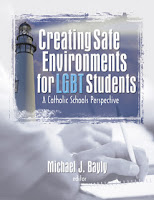 NOTE: The following quotes by Hans Küng (pictured at right) are taken from two European newspapers (Le Monde, February 24, 2009, and La Stampa, February 25, 2009). They were first published in the format below by Joseph O’Leary on his weblog (and under the heading “Church or Sect?”).
NOTE: The following quotes by Hans Küng (pictured at right) are taken from two European newspapers (Le Monde, February 24, 2009, and La Stampa, February 25, 2009). They were first published in the format below by Joseph O’Leary on his weblog (and under the heading “Church or Sect?”).________________________________
Benedict XVI has always lived in an ecclesiastical ambience. He has traveled very little. He has always remained shut up in the Vatican – which is rather similar to the Kremlin of one time - where he is sheltered from criticisms. . . . The Secretary of State, Tarcisio Bertone, who could be a counter-weight, was a subordinate of his at the Congregation for the Doctrine of the Faith; he is a man of doctrine, completely submissive to Benedict XVI. We are facing a structural problem. There is no democratic element in this system, no corrective. The Pope was elected by the conservatives and today it is he who nominates the conservatives. . . .
He is faithful to the Council, in his way. Like John Paul II, he always insists on continuity with “tradition.” For him, this tradition goes back to the medieval and hellenistic periods. Above all he does not want to admit that Vatican II has brought about a rupture, for example as regards the recognition of religious freedom, opposed by all the Popes before the Council. . . . Basically Benedict XVI has an ambiguous position on the texts of the Council, because he is not at ease with modernity and reform. . . .
I think that he defends the idea of the “little flock.” It is a little along the line of the integrists, who think that even if the Church loses a lot of its members, there will remain in the end an elitist Church, made up of “real” Catholics. It is an illusion to think that one can go on like this, without priests or vocations. This evolution is clearly a restoration, which is manifested in the liturgy, but also in acts and gestures, such as telling the Protestants that the Catholic Church is the only true Church. . . . The Church risks becoming a sect. Many Catholics no longer expect anything of this Pope.
When he received me in 2005, it was a courageous act and I really believed he would find the path to reform, even if slowly. But in four years he has proved the contrary. Today I wonder if he is capable of doing anything courageous. For a start he would have to recognize that the Catholic Church is traversing a deep crisis.
Recommended Off-site Link:
Hans Küng’s Papal Criticism Draws Vatican Ire - John Thavis (National Catholic Reporter, February 26, 2009).
See also the previous Wild Reed posts:
“The Real Battle”
Benedict’s Understanding of Church
Clearing Away the Debris
Here Comes Everybody! - Robert McClory Discusses Putting Democracy and Catholicism Together, As It Was In the Beginning
An Intriguing Thought
Of Mustard Seeds and Walled Gardens
The Shrinking Catholic Tent
Beyond Papalism
Hans Küng: Still Speaking from the Heart of the Church
Genuine Authority
A Declaration of Reform and Renewal





















































